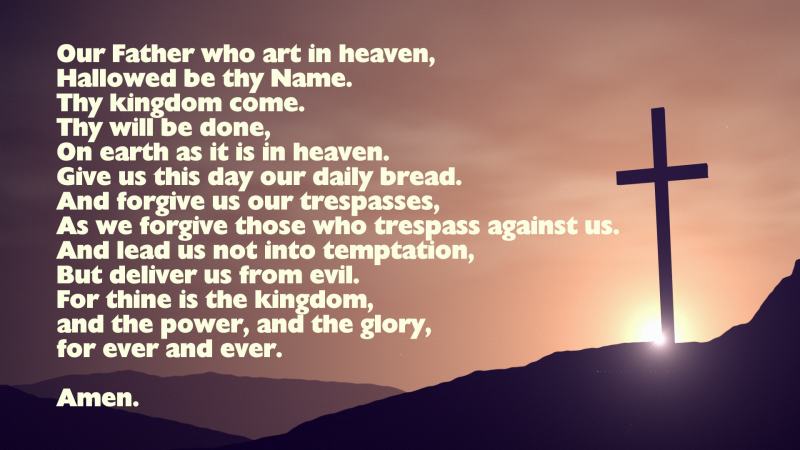The Lord's Prayer
(Greek)
ΠΑΤΕΡ ΗΜΩΝ Ο ΕΝ ΤΟΙΣ ΟΥΡΑΝΟΙΣ
ΑΓΙΑΣΘΗΤΩ ΤΟ ΟΝΟΜΑ ΣΟΥ
ΕΛΘΕΤΩ Η ΒΑΣΙΛΕΙΑ ΣΟΥ
ΓΕΝΗΘΗΤΩ ΤΟ ΘΕΛΗΜΑ ΣΟΥ,
ΩΣ ΕΝ ΟΥΡΑΝΩ ΚΑΙ ΕΠΙ ΤΗΣ ΓΗΣ
ΤΟΝ ΑΡΤΟΝ ΗΜΩΝ ΤΟΝ ΕΠΙΟΥΣΙΟΝ
ΔΟΣ ΗΜΙΝ ΣΗΜΕΡΟΝ
ΚΑΙ ΑΦΕΣ ΗΜΙΝ ΤΑ ΟΦΕΙΛΗΜΑΤΑ ΗΜΩΝ,
ΩΣ ΚΑΙ ΗΜΕΙΣ ΑΦΙΕΜΕΝ ΤΟΙΣ ΟΦΕΙΛΕΤΑΙΣ ΗΜΩΝ
ΚΑΙ ΜΗ ΕΙΣΕΝΕΓΚΗΣ ΗΜΑΣ ΕΙΣ ΠΕΙΡΑΣΜΟΝ,
ΑΛΛΑ ΡΥΣΑΙ ΗΜΑΣ ΑΠΟ ΤΟΥ ΠΟΝΗΡΟΥ.
ΑΜΗΝ.
Transliteration
Pater hêmôn ho en toes ouranoes;
hagiasthêtô to onoma sou;
elthetô hê basileia sou;
genêthêtô to thelêma sou,
hôs en ouranô, kae epi tês gês.
ton arton hêmôn ton epiousion dos hêmin sêmeron;
kae aphes hêmin ta opheilêmata hêmôn,
hôs kae hêmeis aphiemen toes opheiletaes hêmôn;
kae mê eisenenkês hêmas eis peirasmon,
alla rhysae hêmas apo tou ponerou.
hoti sou estin hê basileia kae hê dynamis kae hê doxa eis tous aeônas;
amên.
Line-by-line commentary
Explore the Lord's Prayer through the writings of three famous biblical theologians (Matthew Henry, Adam Clarke and Albert Barnes).
The Lord's prayer opens with addressing God as "Father who art in Heaven". There are then seven petitions. The first requests are contected with the worship of God ("Hallowed be thy name") and His ways. The next four concern the needs of man - his physical ("Give us today our daily bread"), mental (with temptation) spiritual (against evil) and relational needs (forgiveness). The prayer then concludes with a doxology.
Go to line-by-line commentary
The Lord's Prayer
A short inspiring reading of this famous prayer:-
The Lord's prayer contains the sum total of religion and morals.
(Wellington)


